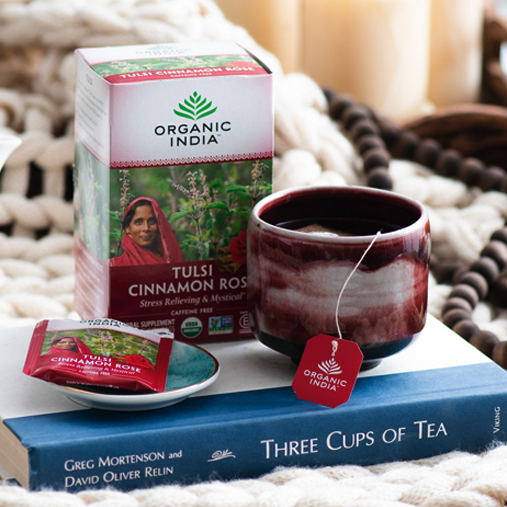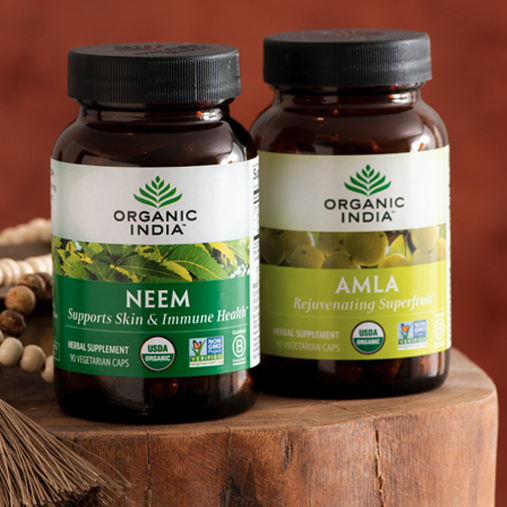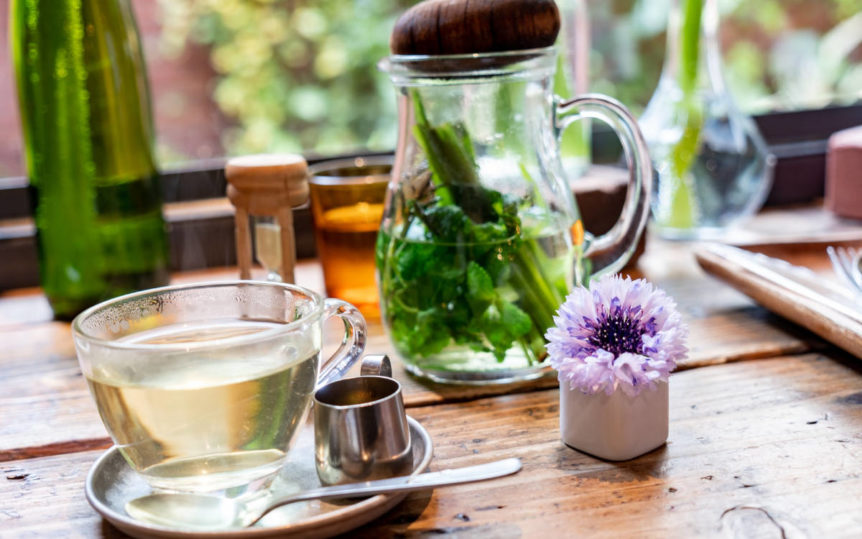Back
From apps designed to help you stop and breathe to meditation and herbal remedies, it seems that people are looking for better ways to combat daily stress.
We’re living in a time where it feels like there is more stress than ever before. Two out of three adults say they have experienced increased stress over the last year. Many people across the globe report feeling overwhelmed and stressed due to the pressures of balancing work and family.
When stress gets out of control, it can do more than make us frazzled. Stress can affect our mood, sleep, focus, and can even compromise our health. Stress often leads to poor performance and can cause feelings of sadness and overwhelm. The most common symptoms of stress include:
- Increased tension in the body, especially the neck and shoulders
- Being quick to anger
- Unexpected mood swings
- Losing your temper
- Screaming or yelling at a loved one
With so many detrimental effects of stress, it’s no wonder a great deal of people are venturing into the realm of natural herbal remedies. By exploring plants and herbs used in traditional Ayurveda, an ancient system of healing, more and more people are finding ways to relieve stress and reduce overwhelm.

Top 5 Herbs for Stress Relief and Mood
From adaptogens to nootropics, there are many plants and herbs that are capable of relieving stress naturally. At Organic India, you’ll find herbs for stress support as well as for cognitive health, immune support, and digestive support. Organic India herbs are grown by small family farmers using organic, regenerative agriculture. Let’s take a look at a few of the most popular herbs for stress relief and mood.
1. Ashwagandha
Ashwagandha is well known in Ayurveda as a powerful restorative herb. The plant itself is a shrub with yellow flowers which bears red fruit, earning it the name “winter cherry.” Also known as “Indian ginseng,” both the shrub and root of this plant have been used for centuries to help:
- Promote mental clarity
- Improve focus
- Restore feelings of calmness
- Promote better sleep
Ashwagandha is one of the most common of the herbs known as “adaptogens.” Adaptogens regulate your body’s response to different kinds of stress – including physical, environmental, and emotional. Adaptogens, like ashwagandha, help the body respond and adapt to stress in part by reducing cortisol levels. If you’re looking for a natural way to keep your stress levels in check, ashwagandha may be the answer.
2. Tulsi
Tulsi, also called “Holy Basil,” is another adaptogenic herb used in Ayurveda to support wellness. The tulsi plant is native to India and depending on the variety, has fragrant green or purple leaves and purple or white flowers. This pungent herb is reminiscent of clove and mint and is often used as an herbal tea.
A natural stress buster, tulsi helps relieve stress and promote better moods. It calms the sympathetic nervous system and returns the body to a state of rest and regeneration. When combined with chamomile and lavender, tulsi is a potent elixir for balancing cortisol levels and supporting the adrenal system.

In ancient Hindu wisdom, tulsi is also known as the “Queen of the Herbs” due to its spiritual and restorative properties. Hindus regard tulsi as the manifestation of the goddess, Laksmi, in the form of a plant. It’s one of the most revered plants and believed to impart blessings of wealth and prosperity on the home.
3. Shankhpushpi
Known for its potent ability to support brain function, shankhpushpi actively works to boost medhya (memory) and improve cognitive function. This perennial plant that is native to India is known in English as “Morning Glory” or “Aloe Weed.” The name, shankhpushpi, comes from the shankha, or conch shape of the flowers.
Packed with powerful antioxidants and flavonoids, each part of the plant has benefits that have been used to improve the power of the brain. This remarkable herb is known for enhancing concentration and increasing the capacity for focus and alertness. It also improves memory and other cognitive abilities. Supplementing with shankhpushpi may help stimulate focus and concentration. It’s also known to help reduce mental fatigue from prolonged cognitive activities such as learning and memorizing.
Shankhpushpi works by balancing chemicals and neurotransmitters in the brain. It keeps serotonin levels balanced, resulting in a more relaxed state for the body and mind. This helps reduce feelings of sadness and supports mental health and emotional stability.
4. Gotu Kola
For thousands of years, gotu kola has had a rich history in Indonesia, China and other countries as a powerful tonic for supporting brain function. Due to its ability to boost memory and concentration, it earned the moniker, “student herb.” In Ayurveda, it’s also known as a Medhya Rasayana. Medhya refers to the intellect or cognitive ability and rasayana means rejuvenating.
Native to the wetlands of Asia, gotu kola has gained popularity across the globe for its benefits as a nootropic herb. A nootropic is a natural or synthetic substance that has a positive impact on the brain. Nootropics may enhance cognitive functions such as memory, attention and creativity.
Gotu kola increases a brain chemical called acetylcholine which helps make synaptic connections in the brain. These connections aid in memory and learning. It’s also thought to increase one’s attention span and boost motivation.
The neuroprotective properties of gotu kola have earned it another name, the “longevity herb.” Gotu kola may protect the brain from damage from toxins and heavy metals. This in turn helps the body maintain gene stability and decrease age-related diseases. Gotu kola is rich in phytonutrients and minerals such as magnesium, calcium and selenium. These minerals help heal damaged tissues and promote collagen production.
5. Bacopa
Bacopa is a small creeping herb with white flowers that loves water and grows in tropical areas. The entire plant can be used in various ways as an herbal remedy. In traditional Ayurveda, it’s known as a rasayana, or a rejuvenator, that helps to revitalize and rejuvenate the body.
Bacopa is another herb with nootropic capabilities. It was traditionally used to support memory and focus as well as improve mood. One study suggests that Bacopa may improve cognitive function in healthy adults and may aid in reducing memory loss. In addition to its potential to improve cognitive function, bacopa is also a powerful antioxidant and supports a healthy inflammatory response.
How to Implement Stress-relieving Herbs Into Your Daily Routine
It seems as if more and more people are taking time to make their emotional health a priority. Many are looking for ways to relieve stress naturally and effortlessly. Adding stress-relieving herbs into your daily routine doesn’t have to be hard, it can be as simple as enjoying a cup of tulsi tea in the morning for a soothing mood booster. Many herbs for stress relief can be found in capsule form, making a quick and easy way to get herbal support for your body and mind.

Aromatherapy is another popular way to incorporate essential oils from herbs like tulsi, basil, lavender, and eucalyptus into your day. The aroma of a fresh and invigorating scent can improve focus, while soothing scents can help alleviate stress. Essential oils can be added to a diffuser or gently massaged into the skin.
Get the Most Out of Mood-boosting Herbs
Once you decide on the best herbs to add to your daily routine for stress relief and improved moods, you’ll want to make sure you’re getting the most out of them. It’s not enough to take herbal supplements or drink herbal teas. Here are some things you can do to support your routine of supplementing with mood-boosting herbs:
- Choose a diet rich in protein, fiber and healthy fat.
- Remove excess sugar and processed foods from your diet.
- Practice daily meditation.
- Practice yoga or Thai Chi weekly.
- Write in a journal.
- Take a relaxing bubble bath.
- Diffuse calming essential oils into your room.
Today, there are numerous apps available that encourage stillness and breathwork. You can follow along to meditation videos found on YouTube. Many people have found that coloring or journaling can be contemplative and help improve mental health.
Relieve Stress and Improve Mood With Herbs
Stress is a physiological reaction that can manifest itself through exhaustion or low energy and through emotional symptoms including feeling irritable, tense and burned out. Herbs for stress relief, like ashwagandha, gotu kola, and bacopa, can help restore balance in the body and increase the quality of life. Whether you choose to supercharge your day by incorporating herbal tea, herbal capsules, or essential oils into your daily routine, nurturing your body, mind and spirit has never been easier. Try our Stress & Mood Support Daily Pack. It takes the guesswork out of your daily routine.















